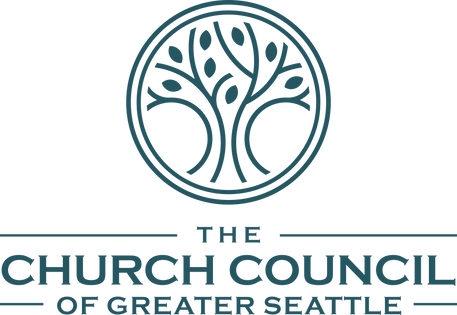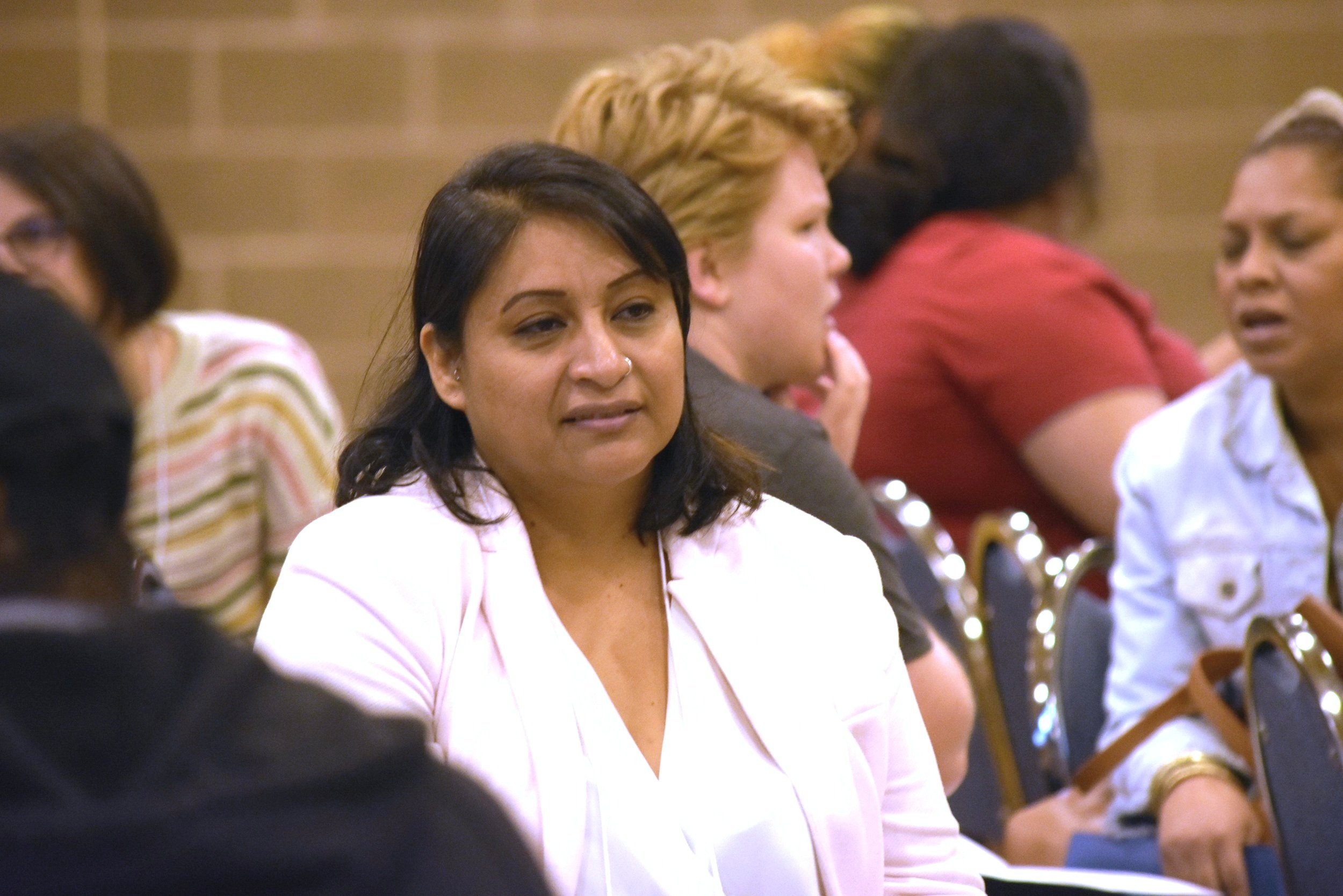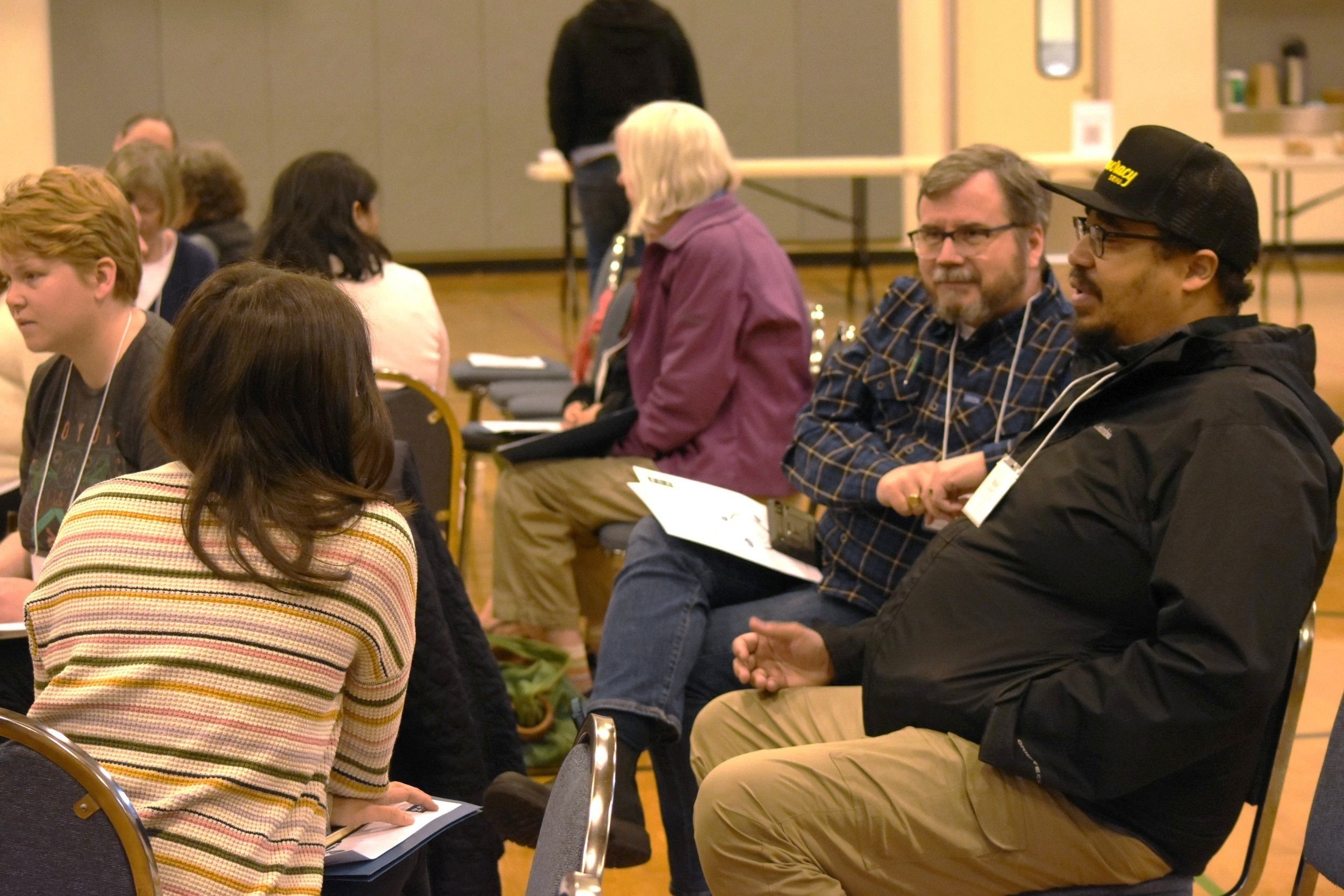Celebrating Weaving Our Strengths
On Saturday, April 27, over 60 community members joined us for Weaving Our Strengths, hosted at Blaine Memorial United Methodist Church. This was the first year in the Church Council's history where we were able to support a fully interpreted, bilingual program in English and Spanish. We celebrate this important step as we continue to deepen our organizing work in bridging the leadership of impacted communities, particularly our Grupo de Solidaridad, with our historic faith partners.
Missed the event? Stay up to date with the action alerts from each workshop through the signup form below!
We began the day with a training on Crossroads anti-racism values and the organizing spiral, which we use to inform and evaluate all of our work at the Church Council. Staff shared stories of how we use these methodologies, and participants discussed how these principles may inform their organizing work in the future.
After lunch, we moved into workshops, repeated twice. Our Grupo de Solidaridad has been working to develop their priorities for 2024 and beyond - Marina shared the fruits of the past year as Grupo re-gathered, formed relationships, and considered what is possible with the collective power we are building. Stay tuned for more updates on the work to come, as well as invitations to participate in each of our three focus areas this year.
The Faith Land Initiative continues to recruit for our 2024-2025 cohort season. E.N. shared an overview of all that Faith Land has to offer, as well as providing an opportunity for participants to add another organizing tool to their toolbelt. We are excited to hear there is strong interest for the cohort next fall! There is still time to connect if your faith community is interested.
Finally, Joey facilitated a panel of organizers from emerging areas of our work to speak to what true solidarity looks like in this moment. Aretha Basu from Puget Sound Sage spoke to the upcoming demands of the Solidarity Budget for the City of Seattle in the fall. Ledah Kaplan Wilcox of Jewish Voice for Peace shared about the movement for a permanent ceasefire and an end to US military funding of the state of Israel. Jess Rojas from International Migrant Alliance (IMA), joined by Adriana Figueira from Comunidad Sin Fronteras during the second panel, shared the experiences and demands of newly arriving migrants as they seek immediate and long-term solutions to the lack of resources offered them when they arrive to Washington state. Among all three, the themes were clear: solidarity means following the leadership of communities most impacted by systemic oppression, it requires relationship as well as accountability, it is active, and it requires risking privilege in pursuit of liberation.






